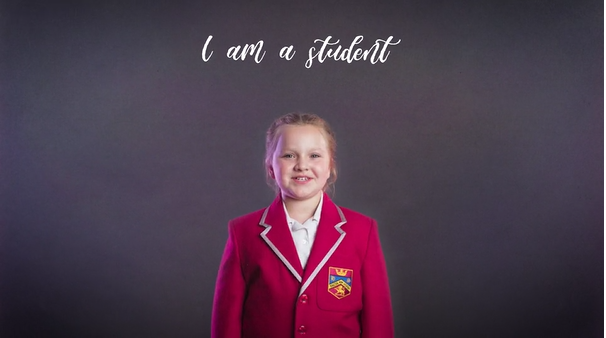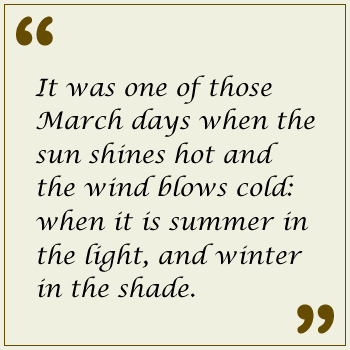Good morning, Prep School family,
I hope you are all well and looking forward to a terrific Tuesday. I had a super weekend – seeing friends, a spot of shopping and dinner out with Mr Bennett, it was lovely!
Mothering Sunday is a day of mixed of emotions for many people for so many different reasons. For some, it is the most joyous of days, surrounded by those you love. For others, it is a day to struggle through – one of sadness, reflection and remembrance. Mothering Sunday is everywhere – in shops, hotels, on the television, in magazines and in restaurants -it is very hard to escape. Personally, it is a day I get through. I spend the day remembering the special ladies in my life that I have loved and lost. I especially think about my amazing mum and my grandma. I smile at random memories that come to me throughout the day and feel so grateful that I have these but I also feel robbed that I don’t have any more time with them to create anymore more special times. This is a hard pill to swallow. No matter how much time passes, the grief and the loss are still there. They take different forms on different days but they are always still there. I’m not writing all of this in a bid for sympathy, I’m simply sharing with you to show that it is ok not to be ok and it is ok to find certain situations hard. Different days affect different people in so many ways – we don’t know what people are carrying around with them.
I came across a really useful article a few weeks ago linked to grief and I wish I had read it many years ago. It is written by Winston’s Wish, a bereavement charity that helps anyone struggling with loss. I thought it would be helpful to share with you all. It is called “The 12 things I wished I had known about grief”.
- There aren’t just five stages of grief
There are lots of different ‘models of grief’ that clever people have come up with to neatly package grief into boxes. One that is often talked about suggests first you’ll feel this, then you’ll feel like that and once you’ve gone through all five stages, it’ll be over. Grief just isn’t like that. Its messy, it is disordered, it can jump from one emotion to another and back. And that’s all ok. It’s really normal. Grief doesn’t nicely fit into a box.
- Grief isn’t something you ‘get over’
Grief is not an obstacle course that you just need to complete and then that’s it. It’s not something that has a middle and end. It’s not something that you can tick off on a to-do list and never revisit. For some people, grief can be triggered at different points in their lives. It’s an ongoing experience.
- Getting help doesn’t mean you’re unwell or weak
Getting help is about acknowledging that a massive life-changing experience has occurred. Bereavement isn’t an illness. Grief is not something to be solved or fixed. It is part of what makes us human.
- Sudden bursts of emotion are normal when you’re grieving
Some people worry that if you experience sudden emotions then there is something wrong. Quite the contrary, we sometimes talk about grief being like being out at sea following a shipwreck. The waves all crashing around you. Emotion, after emotion. It can feel very overwhelming. Go with it. One thing we know is that expressing those sudden bursts of emotion is a good thing to do. Maybe have a plan of what you’ll do if you suddenly cry, feel angry or anxious. Having a plan, even if you don’t follow it can make the emotions feel more manageable.
- It’s ok not to cry
Crying is a normal response to sadness but it certainly isn’t the only one. If you cry, that’s ok. If you don’t cry, that’s ok. Some young people we work with tell us that they worry about not crying. We know that the sadness and grief can be felt just as deeply and powerfully whether you cry or you don’t.
- Laughing and having fun is ok
When we see grief on the television, we see lots of people being sad, angry, crying or withdrawn. But laughter and fun are grief too. When we remember someone we might laugh at the silly things they said or did. We might reminisce together about all the good things. This is part of grief too.
- You won’t go back to your old self
This one sounds obvious but it’s essential to acknowledge that something really big and really important has happened to you. While grieving you’ll learn new skills and things about yourself. Also, you have experienced something challenging and maybe different to your friends. We talk about finding a new normal and this is the same with who you are. You’ll find a ‘new normal’ you. It might be more confident, or anxious or inquisitive or anything else. But one thing is for sure, you won’t be the same as you were before but this is ok.
- You can still experience grief even if you didn’t like or had a strained relationship with the person who has died
Many children have had strained relationships with the person who has died. It may feel like a relief that they’ve died and this can, in turn, make things feel a bit more complicated. Also, you may have wanted to repair the relationship or regret having said or done something. Most importantly though is that your grief is completely valid and legitimate.
- Telling people about yourself can need a bit of thought
“So how many brothers and sisters do you have?” “How often do you see your dad?” “How many children do you have?”. These are really normal questions to ask when trying to be polite. These innocuous questions for someone for whom someone important has died can be so complicated. Do you say you say I have two sisters and risk they’ll ask more and you’ll have to explain one has died? Do you say one and feel like you’re pretending they don’t exist? There’s no right or wrong answer to how you respond, but it does take some forethought.
- It’s impossible to replace someone who has died
When someone important to you dies it isn’t like when your favourite mug breaks and you just get a new one. Nothing will ever replace the person who has died. You might get a new stepparent or new sibling but they will never be the important person who has died. It is also important to realise that remembering the person who has died doesn’t belittle or dismiss the new people in your life, but honours who they were and acknowledges how important they are to you.
- Grief can be a physical pain
We understand that the death of someone important causes emotional distress but it’s not always known that grief can cause physical distress too. People tell us that they sometimes have general aches and pains, sickness or digestive problems. Grief affects your whole body, emotionally and physically.
- Well-meaning people can say ridiculous things
People say the silliest things when they’re nervous. Even though people dying happens every day, as a society we aren’t very good at talking about or acknowledging death. In other cultures, rituals around death help this but in Britain, we don’t really have any but we try. And that needs to be given credit for. Sometimes silence says it all.
Remember to always be kind. Ask if you need help and don’t forget, we are a family, we are all here for each other. My door is always open. . .
Quote of the week: “It was one of those days in March when the sun shines hot and the wind blows cold: when it is summer in the light and winter in the shade.” – Charles Dickens
Well-being tasks for this week: These tasks for are for a Mindful March and Active April.
Tuesday 29 March – Choose a different route today and see what you notice
Wednesday 30 March – Mentally scan your body and notice what it is feeling
Thursday 31 March – Discover the joy in the simple things of life
Friday 1 April – Commit to being more active this month – start today
Saturday 2 April – Spend as much time as possible outdoors
Sunday 3 April – Listen to your body and be grateful for what it can do
Monday 4 April– Eat healthy and natural food today – drink lots
Jokes of the week:
Why did the scarecrow win an award? Because he was outstanding in his field!
What lights up a football stadium? A football match!
Why shouldn’t you write with a broken pencil? Because it’s pointless!
How do you tell if a vampire is sick? By how much he is coffin!
Sleeps til Santa: 270 days
5 things that I am grateful for or looking forward to this week:
Can you try this simple exercise in gratitude and positivity?
- I am looking forward to catching up with an old friend
- I am looking forward to non-uniform day
- I am looking forward to my club on Friday
- I am grateful for long walks and time to think
- I am grateful for friendship
Have a super week, will it snow as per the forecast. . . watch this space!
Take care of yourself and each other,
Mrs Bennett




